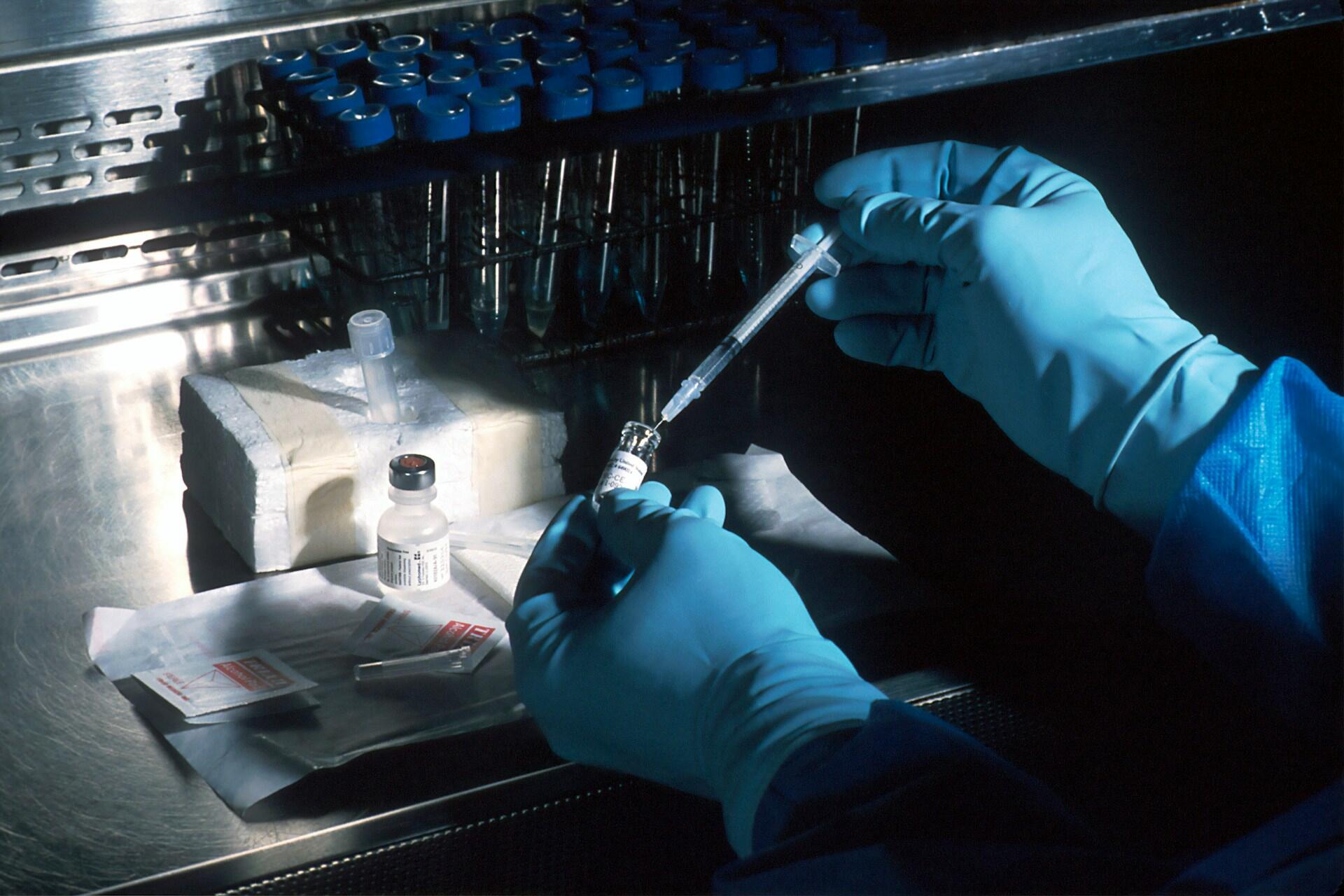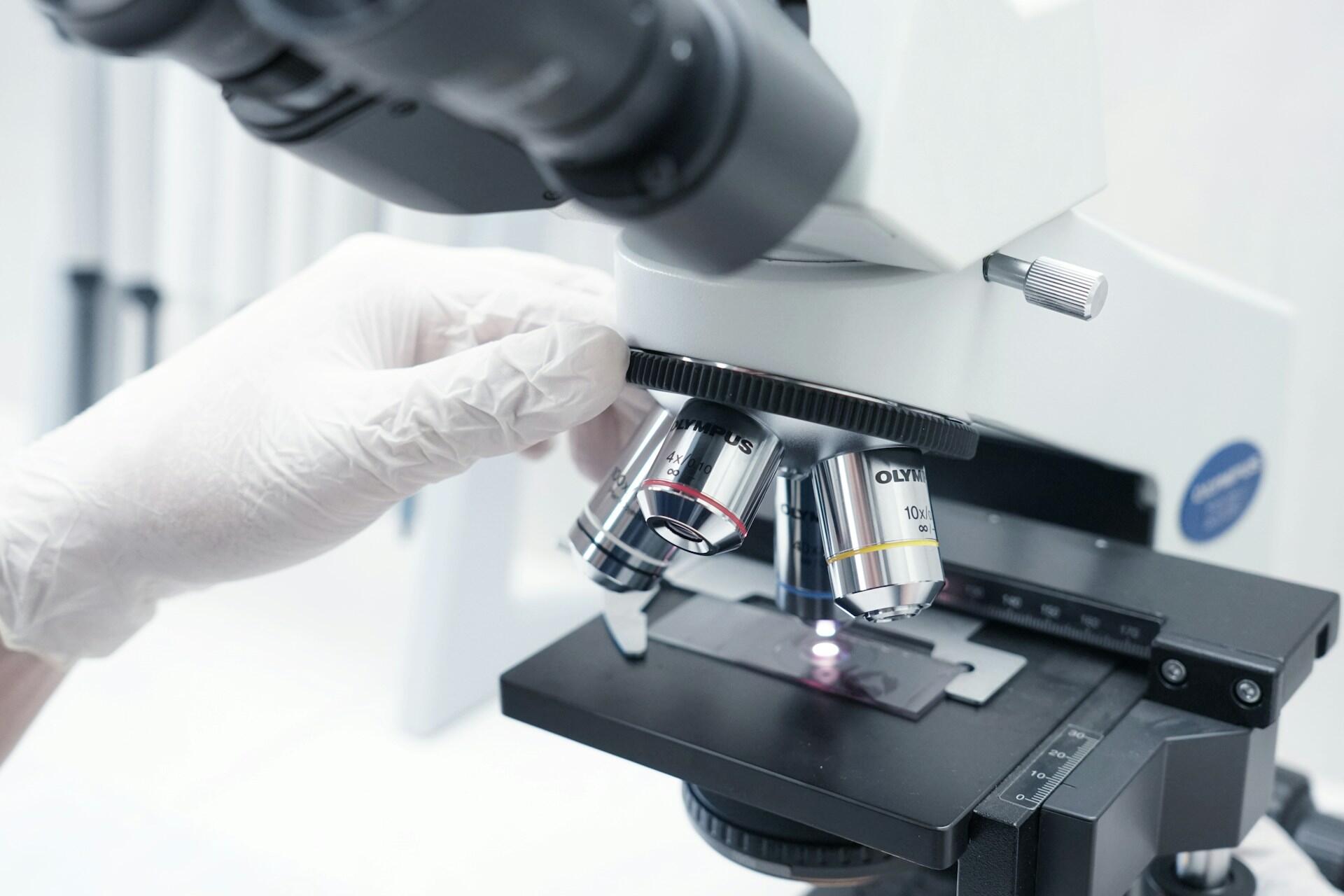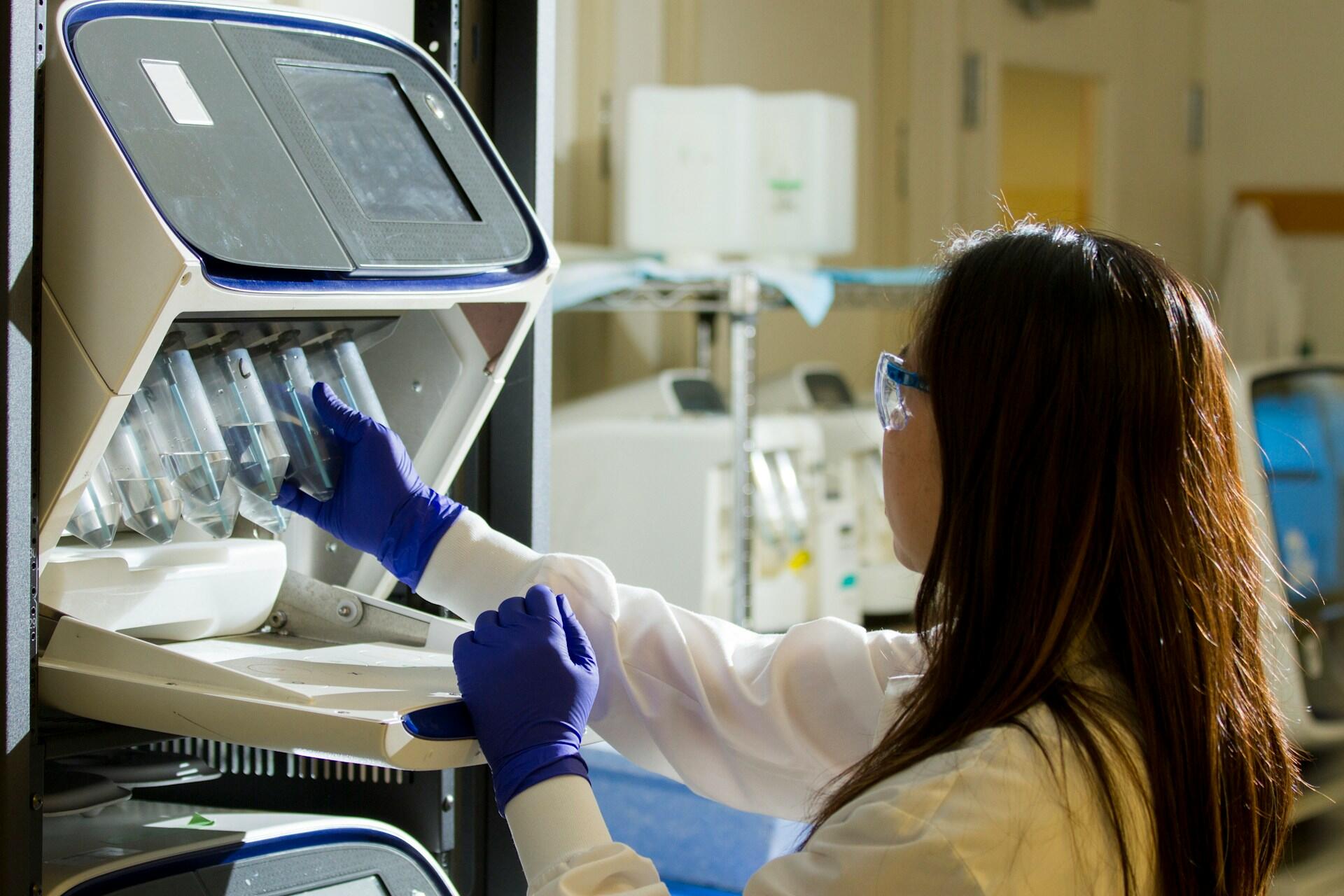Biotechnology is a hard major for many students. We're not saying this isn't true. Still, there are certainly aspects of the subject that contribute to this, and simply knowing about them can help you develop a plan to tackle biotechnology. So, is biotech hard? Here, we'll look at what makes it so tricky and what you can do about it.
Key Takeaways
- Biotechnology is challenging because it combines biology, chemistry, statistics, and practical lab work into one degree
- The subject is process-driven, meaning understanding systems matters more than memorizing facts
- Hands on laboratory work adds pressure through experimentation, troubleshooting, and data interpretation
- Rapid scientific advances require students to stay adaptable and comfortable with ongoing learning
- Strong career prospects increase competition and performance pressure for students
- Biotechnology is no more complex than medicine or engineering, but it is hard in a different way
- Success depends more on study approach, practical experience, and early support than natural ability

What Makes Biotechnology Challenging
Biotechnology combines several disciplines. You'll have to apply theory in practical, real-world contexts. While some degrees focus on a single mode of learning, biotechnology requires students to constantly switch between abstract concepts, data interpretation, and experimental work. Coursework will have students moving from molecular theory to applied problem-solving. Any knowledge gaps will feel like chasms, so you need to be on top of everything. You also need technical skills to interpret results accurately. Since the field is rapidly evolving, you'll also need to constantly adapt to new scientific methods.
Biotechnology is often considered difficult because it combines multiple scientific disciplines into a single field of study. Students are expected to understand biology at a molecular level while also applying concepts from chemistry, mathematics, and engineering. This interdisciplinary structure means that weaknesses in one area, such as statistics or biochemistry, can make the overall course feel more challenging. In addition, biotechnology programs frequently require students to interpret experimental data, understand regulatory concepts, and keep pace with rapid scientific developments, all of which add to the academic pressure.
The Complexity of the Subject
Biotechnology is hard because it's a complex subject. You also have to combine molecular biology, genetics, biochemistry, chemistry, and statistics. You constantly have to combine an understanding of each and any time you find your understanding lacking, it'll feel like it's halting your progress.

Biotechnology also focuses on how systems work rather than just what they are. Is biotechnology a hard major, though? Basically, students have to follow biological processes step by step, connect molecular changes to real outcomes, and interpret data rather than memorize facts. This is a layered, process-driven approach, which is why biotechnology is considered a hard major, and many students struggle with it when they first start studying it.
Requirement for Hands-On Laboratory Experience
Biotechnology also features plenty of practical laboratory work. Biotechnology means students have to apply concepts through experiments, data collection, and analysis. Understanding the science is only part of the challenge. Students have to execute techniques accurately and interpret the results.
Lab work introduces a kind of pressure that you don't have in purely academic courses. Experiments can fail, you may end up with unclear results, and small mistakes can snowball. Students have to troubleshoot problems, understand what happened when results differ from expectations, and link their experimental data back to the theory behind the biological processes.
Rapid Developments in the Field
Biotechnology is a challenging field that constantly evolves. New techniques, tools, and discoveries will change how biological problems are studied and solved. Students have to learn established scientific principles and also understand how those principles are applied to new methods and technologies.

Biotechnology never slows down, and students might find this overwhelming. Your course may reference cutting-edge research, unfamiliar techniques, and developing areas of the biotech industry. In biotechnology, you have to stay adaptable and comfortable and learn concepts that don't have fixed rules or long-established frameworks.
Lucrative Career Options
So what's it all for? Luckily, there are strong career paths associated with biotechnology. Biotechnology offers a pathway to well-paid, specialized roles in science, healthcare, and industry. While this is a good reason to study biotechnology, it also makes the field very competitive, and students often feel pressured to outperform peers.

Every exam, lab result, or project affects your future career success, which can lead to stress and self-doubt. Naturally, the field is competitive, and it pays to work hard, but remember that there's also a lot of work in biotechnology, even if you're not at the top of your class.
Comparing Biotechnology to Other Fields
Many students find biotechnology difficult, but it isn't the only subject that's challenging. There are a few majors that often draw comparisons to biotechnology majors for their difficulty. Medicine and engineering are two fine examples, so let's see how they compare.
Biotechnology vs Medicine
Biotechnology and medicine can both be demanding, and they differ in some key ways, but is biotechnology harder than medicine? Medicine is famous for horrific workloads, memorization, and high-stakes exams. Biotechnology focuses more on biological processes and their application. Students who prefer lab work may find biotechnology challenging, while medicine is also rife with pressures.
| Aspect | Biotechnology | Medicine |
|---|---|---|
| Primary focus | Understanding and applying biological processes at a molecular and systems level | Diagnosing, treating, and managing patient health |
| Core difficulty | Interdisciplinary content combining biology, chemistry, statistics, and lab work | High-volume memorization and clinical decision-making |
| Math and statistics | Regular use of statistics, data analysis, and experimental interpretation | Limited math, mostly basic statistics in research contexts |
| Laboratory work | Essential and ongoing throughout the degree | Minimal lab work after pre-clinical years |
| Learning style | Conceptual understanding combined with experimental application | Memorization followed by practical clinical training |
| Assessment pressure | Lab reports, data interpretation, written exams | High-stakes exams and clinical evaluations |
| Type of difficulty | Technically and analytically demanding | Emotionally, mentally, and time-intensive |
Biotechnology vs Engineering
Engineering and biotechnology both feature technical difficulties. However, where the difficulty comes from is different. Engineering's difficulty is mainly in mathematics and physics. In biotechnology, biological systems often yield uncertain results. Biotechnology students who prefer clear rules and fixed answers may wish they were doing engineering some days, but both are still challenging.
| Aspect | Biotechnology | Engineering |
|---|---|---|
| Primary focus | Biological systems, molecular processes, and product development | Designing and building mechanical, electrical, or structural systems |
| Core difficulty | Managing biological complexity and interdisciplinary content | Advanced mathematics and physics-based problem solving |
| Math requirements | Statistics and applied mathematics | Heavy use of calculus, linear algebra, and advanced mathematics |
| Predictability of problems | Lower predictability due to biological variability | Higher predictability with defined inputs and outputs |
| Laboratory vs technical work | Wet labs, experiments, and biological data analysis | Simulations, calculations, and technical design projects |
| Learning curve | Steep due to abstract biological concepts | Steep due to mathematical intensity |
| Type of difficulty | Conceptual and experimental | Mathematical and technical |
Strategies to Succeed in Biotechnology Studies
Biotechnology is undoubtedly a challenging major, but you'll find that success comes with the approaches you take more than natural ability. Students struggle because they rely on memorization to improve their results or because they don't address knowledge gaps. Biotechnology students can get good results with effective study habits, practical experience, and getting help from biology tutors when they need it.

You do not need to be perfect at every science subject to succeed in biotechnology. Many students initially struggle with complex concepts such as genetics, molecular processes, and laboratory techniques, but improvement comes with practice and support. Success in biotechnology often depends more on persistence, problem-solving skills, and hands-on experience than natural ability alone. With effective study strategies, practical lab exposure, and academic support such as tutoring, students from a wide range of educational backgrounds can perform well and build confidence in this demanding field.
Effective Study Techniques
Effective study techniques will make all the difference when studying biotechnology. Given the subject's breadth across multiple disciplines and branches, you'll need approaches that allow you to understand processes. Revisit material regularly and address confusion whenever it occurs, rather than just memorizing. Active, structured study methods will make the workload feel lighter.
Short, regular review sessions prevent gaps from building up across biology, chemistry, and statistics.
Divide processes such as gene expression or metabolic pathways into clear stages before trying to understand the whole system.
Aim to explain why a process happens, not just what it is called.
Visual tools make abstract molecular and biological processes easier to follow and remember.
Teaching ideas to yourself or others quickly reveals weak points in understanding.3
Connect lecture material to laboratory work to reinforce how concepts apply in real situations.
Spend time analyzing graphs, tables, and results rather than only reviewing notes.3
Build confidence with fundamental data analysis and probability, as these appear throughout biotechnology courses.
Addressing minor misunderstandings early prevents them from becoming major obstacles later.
Gain Practical Experience
Practical experience will make your experience with biotechnology more manageable. Concepts that seem abstract in a lecture can be cleared up by applying them in laboratories, projects, and real research settings. Through hands-on work, many students connect theory to outcomes and become more confident in the subject.
Seek Tutor Support
After all of this, if you're still struggling with biotechnology, you can also reach out to private biotechnology tutors across the United States. Tutors can focus on specific areas of biotechnology that you find challenging or on the whole subject. The issue lies with your study techniques rather than biotechnology itself. If that's the case, you could work with a general study skills tutor rather than a biotechnology tutor. In any case, you can find private tutors on the Superprof website, most of whom offer a free first session. Try a few out before choosing the perfect one for you and your preferred learning style.
Summarize with AI:

















What if the student has no clew of what chemistry is ? Is that really going to affect his scores
Hello Harrison! Thank you for your comment. It is strongly advised to have a clear understanding of chemistry in this career path. If you need help understanding chemistry, Superprof has a team of expert tutors available to help you with the subject. Head over to Superprof.com to find the perfect tutor for your needs!
You know any app to study this subject for students who pursuing BE in Biotechnology
Hello Kavya! If you are interested in finding the best apps for biotechnology, reach out to a Superprof tutor today and they will be more than happy to find the best apps for your learning journey. 🧪🧬